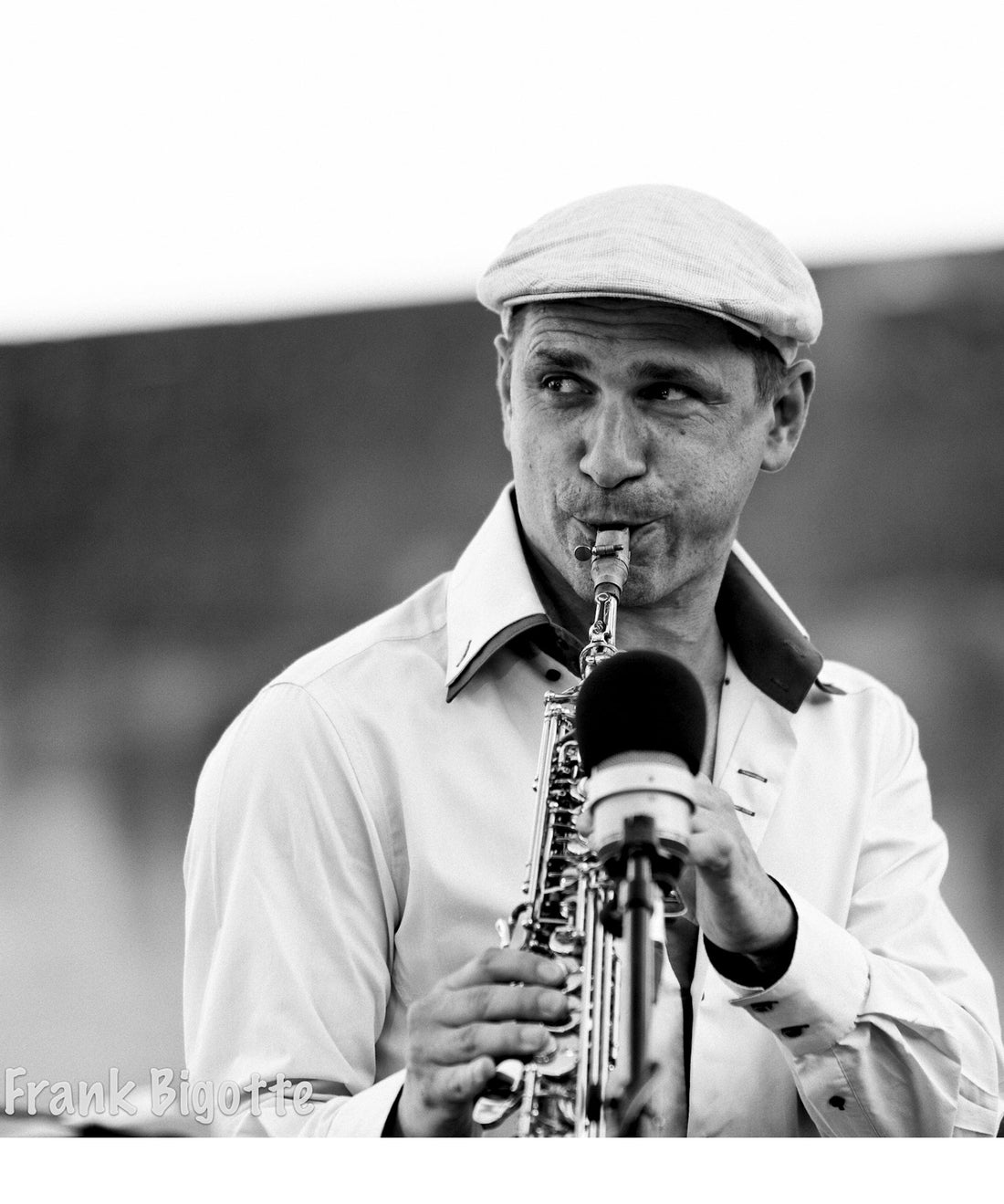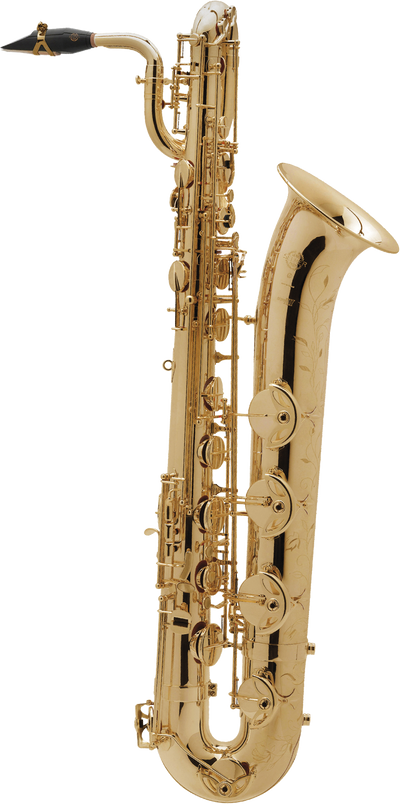Jean-Charles Richard

A musical adventurer, Jean-Charles Richard followed a dual program at the CNSM in Paris, where he was unanimously awarded first prize for classical saxophone and also obtained a higher diploma in jazz. The holder of a Certificate of Aptitude (CA) in classical and jazz and a DEM state diploma in musical analysis, he teaches at the Conservatory of Paris's 13th Arrondissement, and coordinates the course for the specialized jazz and improvised music cycle at the CNR in Paris.
Giving rein to his penchant for extremes, he chose to specialize in the soprano and baritone saxophones. His curiosity for all areas of music lead him to perform with classical orchestras (Orchestre de Paris, Orchestre des Prix du CNSM), big bands (George Russell, Antoine Hervé, Pom, Jean-Loup Longnon), street fanfares (La Bête a bon dos) and pop singers (Bonzom, Ü), as well as cooperating with contemporary music composers (Karlheinz Stockhausen, Thierry Escaich).
From 1995 to 2000, he toured all over the world with a leading humorous music group, Les DéSAXés, in a show produced by the humorist François Rollin. This period included memorable concerts at the Paris Olympia, the Printemps de Bourges and the Paléo Festival in Nyon.
From 2001 to 2005, he worked with juggler Jérôme Thomas's Company to set up Cirque Lili, a show staged more than two hundred times in France, Italy, Austria, Germany and England.
Alongside this, he contributed his skills as a performer, composer and improviser to a large number of collaborations with Dave Liebman, Didier Levallet, the ARFI, David Patrois, Peter Herbert, Chris Culpo, Jean-François Baëz, Claudia Solal, Eric Löhrer, Didier Ithursarry, Daniel Humair…
None of those who appreciated Jean-Charles Richard's inimitable voice in these different contexts suspected that he was simultaneously putting the finishing touches to an ambitious project – particularly hazardous on an instrument only capable of playing a single note at a time – which gives any musician a taste of the loneliness of the long-distance runner: playing absolutely solo.
His first attempt brought total vindication : his first album, Faces, released in 2006 by Herrade/Fairplay-Anticraft, was heralded as a major event (ffff Télérama, Choc du Mois Jazzman).
Unanimous praise which was confirmed by the Faces solo concerts : clearly transcending his influences among the elder generation (Dave Liebman, Steve Lacy, John Surman), Jean-Charles Richard blithely brushed aside a certain number of prejudices concerning this reputedly difficult art, drawing on the essentials – skill, rigor and vision – accompanied by a clear sense of drama and served by a sumptuous soundscape, to produce a moment of pure beauty for the listener's greater enjoyment.
Latest album released: L(EG)ACY (Subsequence / L'heure du loup / Inouïe distribution) with Jean-Charles Richard (soprano and baritone saxophones) and Éric Löhrer (guitar) as a tribute to Steve Lacy's work.
Photo credit: Frank Bigotte


